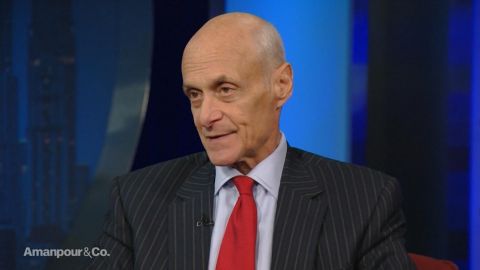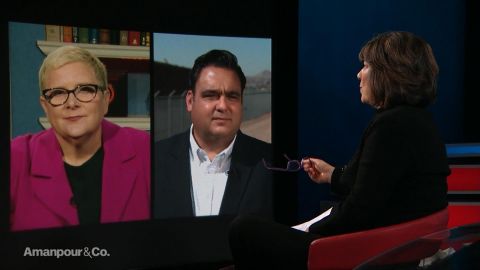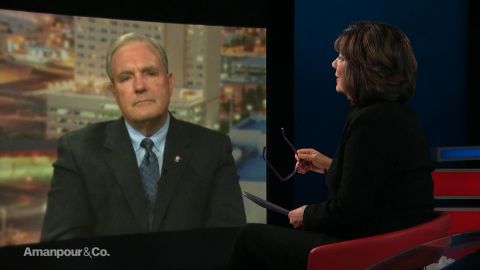Read Transcript EXPAND
CHRISTIANE AMANPOUR: Tell me what you have seen and what you’ve reported on the human story that’s behind all these politics.
ED LAVANDERA, CNN CORRESPONDENT: Well, I think the important thing to understand is just how fluid and how quickly things change here on the border. So that the reason why some people might try to migrate into the United States in 2019 or 2018 is very different from what we saw maybe three or four years ago. And that has really been the challenge that we’ve seen here along the U.S. Southern border over the course of the last month, where really, we have seen the arrival of family units, parents arriving with children. And that is a relatively new phenomenon that you’re seeing here on the U.S. Southern border. And because of that, you’re obviously seeing that there have been some lawmakers who have criticized the Trump administration for not adapting quick enough to dealing with the specific type of people who are arriving here at the U.S. Southern border. So that’s why it’s led to this dramatic increase in children separated from their parents. It was a plan that the administration has essentially admitted to over the course of the last few months, that they hoped this zero-tolerance policy and separating children from their parents, that it would serve as a deterrent to migrants who are mostly coming from Central American companies, to deter them from coming to the United States. That simply hasn’t been the case. And even though the administration has said that that policy has been stopped, we heard the story just over the course of the last month and a half that a young girl who was separated from her father at the end of December. And it took almost a month for that young girl to be reunited with her family. So these, you know, stories kind of really raise questions as to just to what extent these child separation cases are still unfolding.
AMANPOUR: So let me turn to you, Mary Bauer. Because you deal also with this from your legal perspective. But there’s also obviously a humanitarian perspective. Describe the extent of what you’re seeing, in particularly the case of child separations. And as I said, a new inspector general report says that thousands more have been separated than has ever been acknowledged. In other words, the problem is worse than we thought it was.
MARY BAUER, DEPUTY LEGAL DIRECTOR, SOUTHERN POVERTY LAW CENTER: It absolutely is worse than we thought it was. And what we see is that family separation never ended. Family separation has evolved. Family separation has taken slightly different forms, but kids and parents are being separated every day. There are more than 10,000 kids who are detained now across the United States, because of a deliberate Trump administration policy. And it’s not as a previous — the previous speaker indicated an, a failure to adapt. It is a deliberate and nefarious policy, where the administration decided that they were going to take actions that would result in kids being detained longer and in parents then and sponsors being turned over for deportation. And that’s what we’re seeing. We’re seeing more than 10,000 kids locked up
About This Episode EXPAND
Christiane Amanpour speaks with Dee Margo, the mayor of El Paso, TX, to discuss the reality of a border wall; and Mary Bauer & Ed Lavandera about the humanitarian crisis caused by child separations at the border. Hari Sreenivasan speaks with former U.S. Secretary of Homeland Security Michael Chertoff about the growing threat to our privacy today.
LEARN MORE


